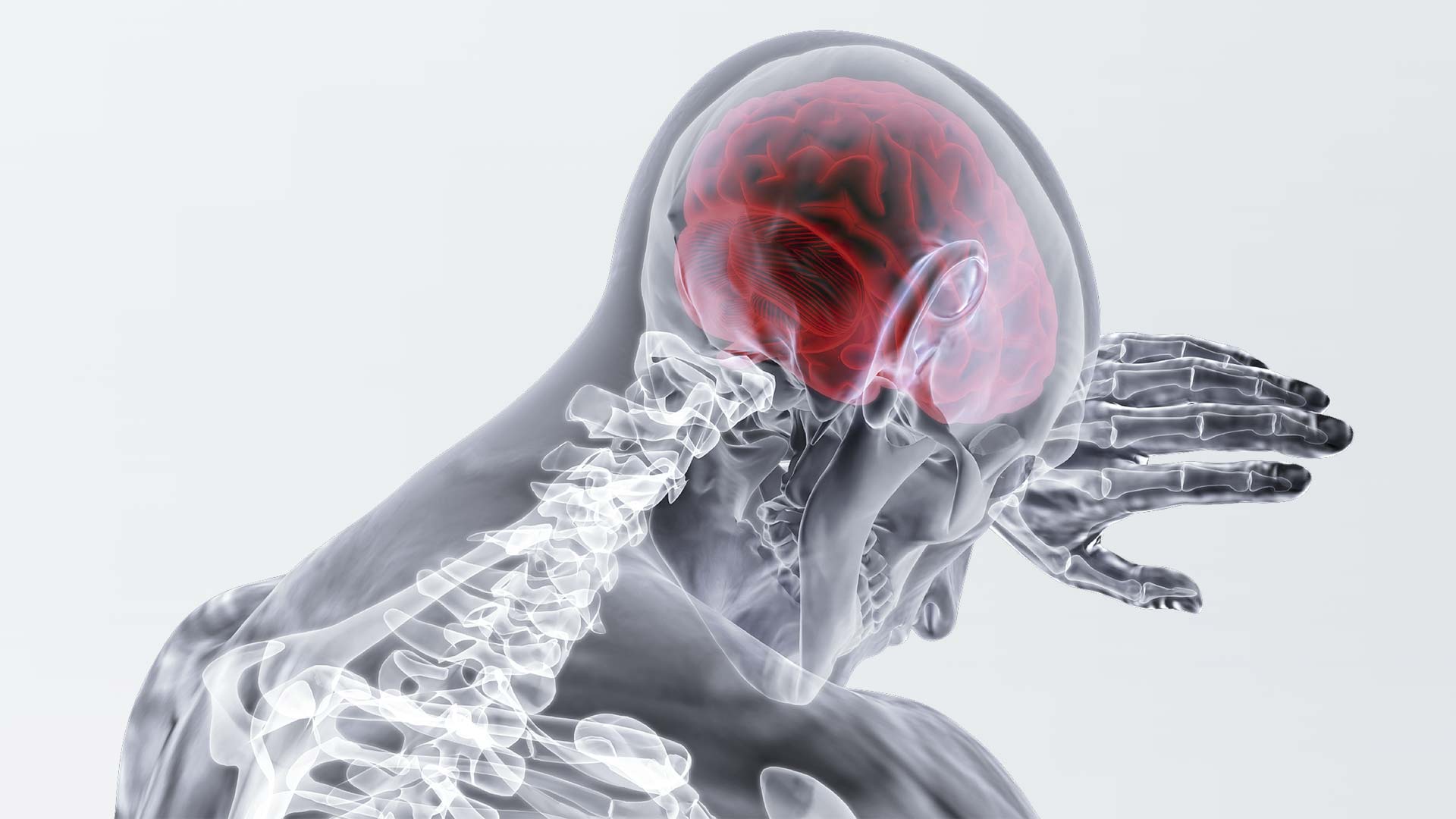Groundbreaking new magnetic brain procedure used for first time in SA to treat depression
Drickus Maartens • February 7, 2020
Advances in brain science set to “revolutionise” treatment of psychiatric conditions
A ground breaking new non-invasive procedure, which uses a magnetic charge to stimulate targeted areas of the brain to treat conditions such as depression and anxiety, has been introduced for the first time on the African continent at Netcare Milpark Hospital in Johannesburg.
The first few patients have undergone the procedure, known in medical terms as transcranial magnetic stimulation (TMS), for the treatment of major depression, anxiety, neurological injury and tinnitus. This was done at the new treatment centre, called Connectomix, which has been established at the hospital by neurosurgeon, Dr Christos Profyris.
The areas of the brain that are targeted for TMS treatment are determined by means of advanced brain mapping. Both the brain mapping and the TMS procedure are non-invasive, as neither of these involve surgery of any kind.
“By using functional magnetic resonance imaging [fMRI] technology with especially developed and highly advanced software, we are now able to observe brain activity in real time and develop a sophisticated computer generated brain function map for each individual. The brain function map enables us to understand the individual’s brain physiology better and we can therefore more precisely target the TMS treatment for each particular person,” Dr Profyris explains.
“TMS is then used to stimulate specifically targeted areas of the brain by means of an electric current which is passed through a magnetic coil to create a high-intensity magnetic field. Outstanding results have been achieved in relieving the symptoms of depression and anxiety in selected patients,” says Dr Profyris, who has extensively researched and trained in brain mapping and the TMS procedure in Australia.
According to Dr Profyris, the development of brain mapping techniques, and tools such as fMRI, are “revolutionising our understanding of the brain and how it works” and enabling medical science to develop more tailored treatments for TMS.
“When I first commenced studying brain mapping with TMS in Australia last year, I was at first sceptical that it could provide a meaningful therapy to people with neurological injury, severe depression or other psychiatric conditions. While TMS is not effective in treating everyone with these conditions, we are however seeing it positively impacting the lives of many individuals.
“Brain mapping with TMS is becoming a meaningful treatment option, particularly for individuals whose depression has not responded to the traditional treatments available and are consequently experiencing treatment-resistant depression.”
Dr Profyris says brain mapping with TMS is furthermore showing immense promise for the treatment of certain brain injuries and other psychiatric conditions such as addiction, fibromyalgia and Alzheimer’s disease.
The TMS procedure is done with a special TMS coil that is simply positioned on the person’s head over a mapped area to either excite or inhibit selected areas of the brain underneath the coil. It is undertaken on an outpatient basis and usually involves several repeat sessions per day over a three-day period. Side effects are generally mild and may include a headache, facial twitches and/or light-headedness, all of which usually improve shortly after every session.
Dr Profyris completed a Fellowship in Australia, where he studied brain mapping as part of a brain tumour fellowship focused on keyhole brain surgery. There he developed a deep interest in brain mapping and recognised the possibilities of using TMS as a therapy for neurological and psychiatric conditions such as depression. He returned to South Africa in 2019, and is practising as a neurosurgeon at Netcare Milpark and Netcare Linksfield hospitals. He has established the Connectomix treatment centre in association with Netcare and Netcare Milpark Hospital.
“Netcare Milpark Hospital is delighted to have partnered with such a pioneering medical practitioner as Dr Profyris to bring this treatment to South Africa for the first time,” concludes Marc van Heerden, general manager of the hospital.

Colorectal cancer, one of the most prevalent yet preventable cancers, can develop in the colon or rectum, often starting as small polyps that can quietly become malignant if left unchecked. Dr Mpho Ramabulana, a colorectal surgeon and gastroenterologist at Netcare Akasia Hospital, underscores the life-saving power of vigilance and the importance of early detection.

The lives of millions of South Africans with a litany of rare diseases can be vastly improved, and even saved, by addressing challenges in identifying, studying and treating their conditions. With Rare Disease Day on the 28th of February 2025, the Rare Diseases Access Initiative (RDAI) is driving an evolution of the country’s healthcare, through innovative strategies to better care for over 4.2million people living with an estimated 7000 rare diseases. “As our healthcare system faces significant changes in the years ahead, it is vital that we also advocate for people living with rare diseases in South Africa, especially those with limited healthcare access,” said Kelly du Plessis, CEO of Rare Diseases South Africa (RDSA), a member of RDAI. “As part of our ongoing research and awareness efforts, RDAI has conducted an initial analysis of the incidence and prevalence of rare diseases within the country.” This research will assist in improving access to healthcare, policy development, and patient advocacy, while giving critical insight into the challenges faced by patients. “According to research, some rare diseases affect fewer than 1 in a million people, while others, such as Down syndrome, cystic fibrosis, and haemophilia, have a more recognisable prevalence,” says Dr. Helen Malherbe, RDAI lead researcher on rare disease prevalence data. “Many conditions are undetected, underdiagnosed or misdiagnosed, with too many having no information available about them at all.” The RDAI was formed in 2019 to promote a more favourable environment for those impacted by rare diseases in South Africa. Participants include Ampath, the Board of Healthcare Funders (BHF), Discovery Health, Genetic Counsellors South Africa (SASHG), the Government Employees Medical Scheme (GEMS), Health Funders Association (HFA), Medihelp, Medscheme, North-West University (NWU), Rare Diseases South Africa (RDSA), the South African Medical Association (SAMA) and The South African Medical Technology Industry Association (SAMED). The Council for Medical Schemes (CMS) participates as an observer. In the same year, Rare Disease International signed a memorandum of understanding with the World Health Organisation leading to an international rare disease policy framework. In 2021, the United Nations General Assembly moved to adopt a resolution recognising 300 million people living with rare diseases worldwide. “A general lack of awareness and delayed diagnosis remain major hurdles for those affected by rare diseases. Policymakers and healthcare stakeholders need to prioritise access to treatment, diagnosis, and support for rare disease patients,” says Bada Pharasi, CEO of IPASA, “Through this initiative, working collaboratively with stakeholders at every level of the healthcare supply chain, we can bring real and meaningful change to those affected, including family members and care givers, through smart and efficient strategies.” The globally agreed definition of a rare disease is any medical condition with a specific pattern of clinical signs, symptoms, and findings that affects fewer than or equal to 1 in 2000 persons in a population. “Most are genetic, and some are inherited and passed down in families,” Malherbe says. “Some affect only the patient’s genetic recipe, while others may be acquired during life due to infection, trauma, or environmental effects. For many, the cause is still unknown. “These conditions mainly affect children, as they are largely incurable and many are life-threatening. Some require specialised and co-ordinated care, some have limited and expensive treatment options, while others have no information or effective treatments at all,” she adds. The RDAI is calling for a patient-centred care model built on equitable access, transparency and efficiency. Naturally, this model calls for the open participation of patients, the healthcare industry, health professionals, and the Government. “The most critical elements are robust diagnosis standards, improved access to treatment, data collection and management, co-ordination of care, measurement of outcomes and ongoing collaborative research,” du Plessis says. “We need to establish rare disease advisory committees, map gaps and opportunities, establish system requirements, create a roadmap and plan a phased implementation with clear timelines.” The RDAI states that these policy development steps would be a start in quantifying the disease burden and defining standards of care. This would be followed by building and strengthening the capacity to facilitate appropriate diagnosis, treatment, continuity and data monitoring. Thoneshan Naidoo, Chief Executive Officer of the Health Funders Association noted that, “We appreciate the unique opportunity provided by RDAI which enables stakeholders across the industry to work together and identify strategies that improve equitable access to the appropriate diagnosis, treatment and healthcare services for rare disease patients, in an affordable and sustainable manner, taking account of the other pressing needs across the healthcare system.” “True innovation in healthcare is only possible through partnerships and joint advocacy efforts that raise awareness and improve access to treatment. Our long-term goal is the development of a rare diseases policy framework and guidelines for coordinated care,” says Pharasi. “Our members are united in the commitment to unlocking improved patient outcomes and improving access to services and robust health needs assessment facilities.” he concludes. About RDAI The Rare Diseases Access Initiative (RDAI) is dedicated to advocating for improved healthcare access, policy development, and patient support for those affected by rare diseases in South Africa. The initiative brings together key healthcare stakeholders, including pharmaceutical associations, funders, genetic specialists, and patient advocacy groups, to drive impactful change. About RDSA Founded in 2013, Rare Diseases South Africa (RDSA) is a non-profit organisation advocating to ensure that people living with rare diseases and congenital disorders experience greater recognition, support, improved health service and better overall quality of life. Started out of personal need following the diagnosis of organisation founder, Kelly du Plessis' son, it became evident that there was a lack of awareness and support for rare diseases in general in South Africa. About IPASA The Innovative Pharmaceutical Association South Africa (IPASA) is a voluntary trade association representing 24 leading pharmaceutical companies committed to research, development, and innovation. Our mission is to drive healthcare advancement by advocating for policies that improve patient access to safe, high-quality, and affordable medicines.











